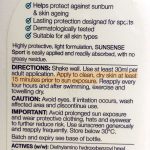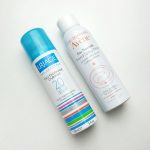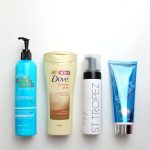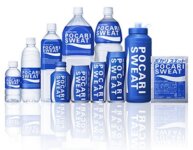You’ll know if you have sensitive skin – even looking at a new product is enough to make your skin erupt into a pit of redness, itching, stinging or puffiness (or all of them at once – lucky you!). Your skin hates products, but it also hates not having products on it. What can you do? Here are a few tips on finding the right routine for you:
Avoid harsh products, or at least use them rarely
This includes abrasive scrubs, foaming cleansers, stiff cleansing brushes. When you need to use a harsh product, like an alpha hydroxy acid or a retinoid (vitamin A derivative – both of these are great for acne and anti-ageing), introduce it slowly and only use them once or twice a week when your skin is in peak condition.
Avoid irritants and common allergens
The best thing to do is to get yourself to a doctor ASAP for an allergy test! In the meantime, if you’re not sure which ingredients trigger your sensitivity yet, it’s safest to avoid products with common irritants and allergens.
Fragrance, alcohol, methylisothiazolinone, essential oils, propylene glycol and formaldehyde-releasing preservatives (e.g. diazolidinyl urea, quaternium-15) are common irritants in beauty products. Parabens are a common preservative ingredient but an allergy to them is rare – for most people with sensitive skin, the alternative preservatives used in place of parabens are more irritating. Vitamin E (tocopherol) is another common ingredient that rarely causes sensitivity, but you may just be one of the unlucky ones.
Go for products with as few ingredients as possible
The fewer the ingredients, the less likely it will be that you’ll have a sensitivity. Some ingredients that very very few people are sensitive to, and are good for repairing the skin barrier, are petroleum jelly, mineral oil, ceramides and glycerin. In general, all-natural products will have more ingredients than petroleum-based products (have you seen the number of chemicals in a blueberry?), and more seasonal variation too, so they can be problematic for sensitive skins.
Dry products also tend to be safer than liquid products, as they need less preservatives to keep them bacteria-free.
Wear a sunscreen
Sun is an environmental irritant, so it’s important to protect sensitive skin from excessive sunshine. The physical sunscreen ingredients zinc oxide and titanium dioxide are the safest for sensitive skin, but unfortunately they tend to be weaker at blocking UVA light, which causes wrinkles and melanoma. The chemical sunscreen ingredients which cause the most reactions are oxybenzone, methoxycinnamate and avobenzone. Luckily, it’s much easier to find allergen-free sunglasses, UV-protective clothing and shade!
Patch test all your products.
Patch testing involves applying a small patch of a potential new product behind your ear or in the crook of your elbow for a week or so, and checking for a reaction before putting it on your face. This is a good way to avoid full face tomato-coloured irritation! For wash-off products, make sure you rinse them off each time – most wash-off products will irritate even the hardiest of skins if left on for too long.







Great information! 🙂 What do you think about the Neostrata Salizinc Gel? It contains 10% glycolic acid and 2% salicylic acid. Do you think it may be too strong for “normal” skin? Cuz I’m a bit worried about the side effects of that much glycolic acid…
It should be OK if you work up to it – have you used lower percentages of glycolic acid or salicylic acid by itself before? I would recommend trying either of those first and letting your skin adjust before trying out the Salizinc.
Thanks for your answer. Yup, I used lower percentages of glycolic acid and saliclylic acid before. 🙂 At the moment I use the PC BHA-lotion with 2% salicylic acid (no problems with that) but they increased the prices, so I was looking for an alternative with the same effect.
Titanium dioxide and zinc oxide bad at blocking UVA light? Say what? Where did you hear that? That’s…. not correct at all. They are amongst the most reliable broad-spectrum sunscreens we have. As physical blocks, they cover the whole UV spectrum. The rest of the article was great. I like how you made it clear that paraben-preserved products are a good choice for sensitive skin (and any skin, really), and are nothing to avoid despite being incorrectly labeled ~dangerous. I’m also glad you recommended mineral oil and petroleum jelly. They also get a bad, and scientifically bogus, rap. But the sunscreen thing… No.
I suppose “bad” is probably a bit overkill (I’ve changed it to “weaker”) – if you look at physical-only sunscreens, they generally give PPD 10 or less, which is pretty tame compared to chemical/physical combo sunscreens (e.g. Bioderma, La Roche-Posay) which can give PPD 50. The only way physical-only sunscreens can give that level of protection is if it’s applied in a solid white layer, which for most people is impractical (mime artists excepted).
It’s a common gripe for me with regard to sunscreens. I try to go as natural as possible because I have sensitive skin but i can’t ditch the ones I’ve tried that aren’t “natural” but still does the thing of protecting my easily-sunburned skin. Even the comments have little gems. Haha!
I haven’t had allergy testing done in a long, long while – can they test for all those random preservatives? It seems like there are just so many variations. I’ve been unable over the years to pin down what things get to me, and I’d love to have a starting point, but I just didn’t even know it was feasible. I know whatever I’m allergic to, it’s (they’re?) not a fragrance, and something that’s actually used more in things marketed as “hypoallergenic” or “sensitive skin” versions of normal products. Probably some preservative family or families? I’m trying to start having an actual skincare routine, but it just seems like no matter how careful I am I’ll run into something that breaks me out.
A bunch of them are in standard patch tests, but you might want to specifically ask for them! Here’s one list of chemicals tested regularly – it’s got common preservatives like paraben mix, 2-bromo-2-nitropropane-l,3-diol (in many make-up remover wipes), imidazolidinyl urea, quaternium-15.
Thanks for this post, Michelle… I just purchased the Cetaphil foam wash. Is it not a good choice for sensitive skin? It’s supposed to be gentle.
Thanks,
Aidan
Cetaphil should be good for sensitive skin, but if it’s too much, you can look for one of their non-foaming ones.
Thank you for the reply!
Good post.